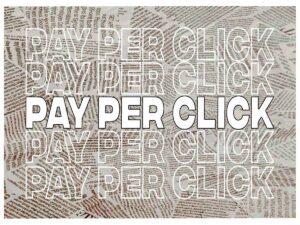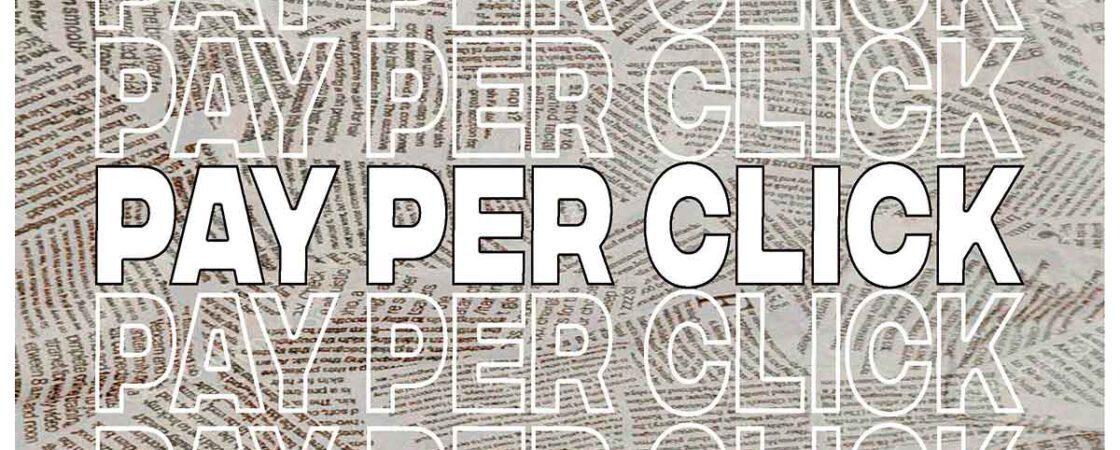Pay per click, or PPC, is a well-liked advertising tactic for online campaigns that aid in boosting website traffic. Due to the fact that advertisers only compensate publishers when their ads are clicked, this works very well. Advertisers are deterred from funding initiatives that cannot be measured as a result.
In this blog, we will help you in understanding every aspect of Pay Per Click and we promise you that this blog would be sufficient for you to understand Is Pay Per Click worth it.
But first I would like to address the most basic questions about this subject.
let’s get into it.
Table of Contents
ToggleWhat does PPC mean?

PPC stands for pay-per-click advertising model and as the name suggests, it’s the payment you make on each click that you admit.
In other words, PPC or pay-per-click is a common advertising model in online campaigns that help drive business to a website. The advertiser only pays the publisher when the advertisement gets clicked on which makes it veritably effective.
Moreover, it prevents advertisers from investing their budgets into campaigns that can not be measured quantitatively. For that reason, the PPC model has become an important notion to understand in digital marketing.
PPC is a digital advertising model where an advertiser pays a specific quantum each time a user clicks on one of their advertisements and visits their website. This quantity can be fixed or determined by trade. The idea of a pay-per-click campaign is to pick up visits from a precise location (site).
The ambition is to induce a specific type of user action similar to registering or buying a product. Although PPC is a common option it isn’t the only payment model for online campaigns. thus it’s important to distinguish it from others like PPM or pay per thousand.
Then the advertiser pays a fixed volume for every thousand impressions but with this model, you don’t know how big you’ll pay for each visit because it’s tough to forecast how many clicks each added thousand impressions will bring.
PPA or payment for accession, in this case, the advertiser pays each time when the user performs a certain action like downloading an app thus the link between cost and objectives is truly more apparent.
How does PPC work?
What are advantages of using PPC?
- You only pay for the visits you admit- In other advertising models, advertisers pay a figure for having the advertisements shown but don’t have the guarantee that it’s generating results. But with pay-per-click, there’s a direct link between cost and performance.
- You have a lot of information about the performance of the advertisement- The pay-per-click platforms offer the advertiser complete knowledge about what’s going on with the ad.
- Good optimization possibilities – With all this data it’s veritably easy to know if an Ad is working or not and correct the course in real-time. The most judicious strategy is to produce several variations of each advertisement and compare them to see which ones work stylishly. Therefore, in this way you can get stylish results every time.
- The advertisements reach the right audience – Thanks to the numerous segmentation options you won’t waste a single click. Only the users you want to target will see the advertisement. This yields better results since a user who’s part of the target audience have a high chance of clicking on the advertisement. Therefore, the high the chance of clicks the lower the cost of the advertisement.
- You can control your budget very precisely – A PPC model allows you to set a maximum budget per day and in some cases, you can start with just one dollar. This means that they can be acclimated to advertisers of all sizes and that you can control in advance how major you spend on each campaign.
- You can decide where and when your advertisement will be shown – Within the pay-per-click model, you can show your advertisements on numerous different platforms and locations and select the ones that fascinate you the most. Some sites also allow you to choose the days and times when your advertisements will be shown.
- You’ll achieve better positioning and visibility – Thanks to PPC you can show your advertisements on some of the sites most visited by users similar to search engines and social networks.
What are disadvantages of using PPC?
- Time investment –Though PPC has its defined way; it does bear your time on and off to examine the direction of its ongoing process.
- Works of Experts – Proper prosecution of PPC requires skills and experience. PPC only fetches results if the combination of searched keywords, advertisement groups, and the campaign is correctly chosen.
- Needs capital investment –Money is frequently wasted if the PPC campaign isn’t executed duly. Inapplicable keywords, leaving the campaign unmonitored may lead to loss.
- Clicks don’t always convert into leads –PPC has not proven itself as a 100 super eminent generation process. It’s hard to convert a user once they reach your website or indeed after following up several times.
- Observers avoid sponsored advertisements –The users are inversely smart and aware of the digital marketing strategies and they understand both organic and paid results are inversely effective.
- Shrinking ROI eventuality –Even after taking the time to invest in getting PPC accomplished, the observable trends in internet user activity have shown far smaller interactions with advertisements of any kind.
Pay per click is used in?
Moreover, PPC is a payment model not specific to a given site or position. That’s why you have numerous options when deciding where you want to show your advertisements, the main ones are :
- PPC Ads in Search Engines – Search engine marketing allows you to show ads to users based on the keywords entered in the search bar. The main search engines such as Google and Bing use a model based on PPC through an auction for advertisers. Page one on Google being able to position your website organically can cost you years of work. But thanks to ads you can establish your presence at a reduced cost.
- PPC Ads on Social Networks – The main advertising tools on social networks similar to Facebook advertisements or Instagram advertisements offer PPC options. These types of advertisements are integrated into the user’s social network skills either in their new section or in a side column.
- PPC display ads – Finally, PPC is also used when displaying banner ads on websites related to a brand’s products and services or in the interests of its target audience.
Is Pay Per Click worth it?
Pay-per-click (PPC) advertising may be a useful technique for companies and organizations trying to boost exposure, create prospects, and improve revenue. PPC is beneficial for an advertiser. It helps ads in reaching the right audience and also, the advertiser can control his budget very precisely.
Businesses may reach specific viewers and bring their message in front of consumers who are actively looking for the goods or services they supply. PPC may be especially beneficial for firms that wish to market certain goods or services or that are focusing on a particular region.
Nevertheless, PPC may not always be the best option for every company or scenario. Because companies pay for each click on their adverts, it can be more costly than other kinds of internet advertising. Taking on these types of campaigns can prove very effective if they are conducted effectively. But you need to avoid becoming overly aggressive.
To decide whether PPC is worthwhile for your company, properly organize and carry out campaigns, establish a spending plan, and monitor and assess campaign outcomes. You can estimate the return on investment (ROI) and whether or not PPC is a reasonable investment for your organization by properly monitoring the success of your PPC ads.
Conclusion:
In our conclusion, we would like to conclude that, pay-per-click (PPC) advertising is a form of internet advertising in which marketers pay a charge every time one of their advertisements is clicked. It is a method of purchasing website visitors instead of trying to “win” such visits naturally.
PPC advertisements may be an efficient tool for businesses and organizations to generate clicks, create prospects, and improve sales, especially if the firm is targeting a specific geography or promoting certain goods or services.
However, PPC may not be the best option for every company or scenario. It could be more costly than other types of internet advertising, so it’s critical to thoroughly analyze the expenses and rewards of PPC and establish if it’s a realistic option for your business depending on your promotional budget and aims.
To evaluate if PPC is worthwhile for your business, carefully design and implement campaigns, define a budget, and monitor and analyze the results of your campaigns to assess the return on investment (ROI). You may assess whether PPC is a smart investment for your organization by carefully monitoring the effectiveness of your PPC ads.
FAQs:
Q-1. Does pay-per-click work?
Yes, pay-per-click (PPC) advertising is effective in driving traffic and generating leads for your business. However, the success of PPC campaigns depends on many factors, including ad relevance, targeting, and keyword competition. Continuously monitoring and optimizing your PPC campaigns is critical for better results.
Q-2. Pay-per-click best practices?
Here are some pay-per-click (PPC) advertising best practices:
- Keyword research tools can help you find relevant, high-traffic keywords to target in your PPC campaign.
- Create ad copy that is clear and concise, accurately represents your product or service, and includes a strong call to action.
- To ensure that your ads are seen by the right people, use targeting options such as location and language.
Q-3. What is the future of PPC?
More AI and machine learning integration for optimization in pay-per-click (PPC) advertising is anticipated, along with a focus on voice search optimization. The expansion of mobile and video advertising, escalating rivalry, and privacy issues might also be factors.

